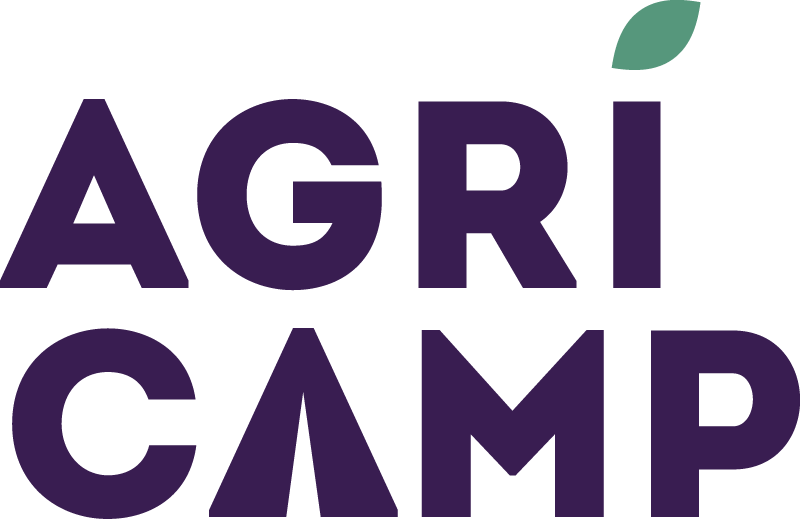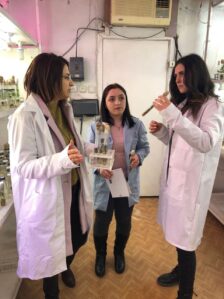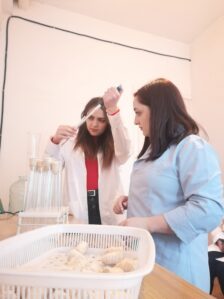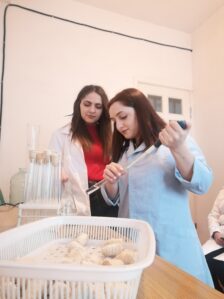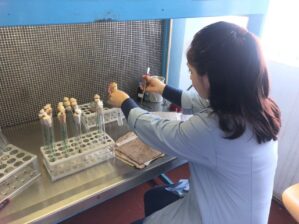Research Title: Development of a new IN VITRO propagation technology of Patrinch pharmacy for obtaining virus-free plants
Student-Researcher: Diana Sumbulyan, Sare Galstyan, ANAU Faculty of Agronomy, Department of Agronomy, Selection and Genetics
Scientific Supervisor: Armine Abrahamyan, Doctor of Biological Sciences, ANAU Chair of Plant Breeding and Soil Science
Research Objective: The aim of the research was to obtain disease- and pest-resistant Melissa by in vitro cultivation and reduce cultivation costs at the expense of control measures, as well as contribute to organic cultivation, obtain high-quality crops, develop a technology for in vitro cultivation of Melissa, which can be a basis for cultivation of other medicinal plants.
Research Results:
The student participated in the following conferences and symposiums:
- On November 26-27, 2022 closing symposium of the international project “BioDATA-biodiversity data for the internationalization of higher education” organized by the University of Oslo. The student made presentation on the topic “Wild Melissa officinalis L. Distribution in Armenia, Occurrence Data Digitization and In Vitro Prorogation for Cultivation”.
- On October 26-27, 2022 international scientific and practical student conference entitled “Ecosystem services in the context of global changes” at Timiryazev State Agrarian University of the Russian Federation, on the topic “Mitigating Climate Change Impacts On Wild Melissa Officinalis L. Populations Through New Cultivation Technqiues In Armenia”.
- On May 24, 2022 12th student scientific conference of the ANAU Faculty of Agronomy Student Scientific Society on the topic “Culturing of wild Melissa, features of in vitro propagation technology”.
- On May 23-27, 2022 ANAU student inter-university conference on “Culturing of wild Melissa, features of in vitro propagation technology”.
- On November 11, 2022 student conference on “Production of virus-free plants of Melissa officinalis L. by in vitro propagation technology” of State University after M. Nalbandyan of Shirak Marz, Republican (with international participation).
Also, the students developed and published three manuscripts:
- Sumbulyan, D., Galstyan, S., Abrahamyan, A., (2022) ” Mitigating climate change impacts on wild Melissa ՕfficinalisԼ. Populations through new cultivation techniques in Аrmenia “. Ecosystem services in the context of global changes, Russian State Agrarian University – Moscow Agricultural Academy named after K. A. Timiryazev. 631.53 (122)/2022. Avalible at: https://www.timacad.ru/uploads/files/20230215/ecosistem-servisu.pdf
- Sumbulyan D. S., Abrahamyan A.V., (2022) “Obtaining virus-free plants of Melissa Officinalis L. under in vitro propagation conditions”, “HAYATSQ” student scientific collection, National Agrarian University of Armenia. 2(18)/2022. Avalible at: https://anau.am/wp-content/uploads/2023/12/Journal_HAYACQ-2022.pdf
- Sumbulyan D. S., Galstyan S. S., (2023) “btaining virus-free plants of Melissa Officinalis L. under in vitro propagation conditions”, Republican Student Conference (with international participation), Shirak M. Nalbandyan State University. 635.7 (80)/2023. Avalible at: https://shsu.am/wp-content/uploads/2023/10/%D4%B3%D5%AB%D5%BF%D5%A1%D5%AA%D5%B8%D5%B2%D5%B8%D5%BE%D5%AB-%D5%B6%D5%B5%D5%B8%D6%82%D5%A9%D5%A5%D6%80%D5%AB-%D5%AA%D5%B8%D5%B2%D5%B8%D5%BE%D5%A1%D5%AE%D5%B8%D6%82.pdf?fbclid=IwAR3d15f4-17yOVa8_os4LWFHQFj7XCp0hDU-Wi5Ra0aA_5rSYgm3FNfir0s
Story Behind the Research
The essence of the joint research conducted by the AGRI CAMP Program grantees Diana Sumbulyan and Sareh Galstyan, is that with the introduction of in vitro cultivation technology for melissa it will be possible to get a better crop with reduced agro-technical costs.
Why did you decide to choose this research topic?
Diana: – The main purpose of the research is to obtain virus-free plants of melissa resistant to diseases and pests.
Sare: – I had a chance to discuss with Diana melissa cultivation options back in 2018, when she, toghether with her supervisor Armine Abrahamyan, were doing relevant researches. I listened with great interest the stories about their expeditions, and when Diana offered to do a research on this topic together, I gladly accepted the offer. The topic seemed relevant and interesting to me, and the research related to it seemed to provide good opportunities․
Diana: – My scientific supervisor, Armine Abrahamyan and I started researching on this topic in 2018-2020. At the suggestion of my scientific supervisor, I had an opportunity to participate in the wild herbs expedition. In 2021 I was lucky enough to digitize plant species within the framework of the Biodata program. Thus, I had already started studying herbs, and when it came to cultivation, my supervisor and I decided to do in vitro cultivation of the herb as my diploma thesis.
How did your initial assumptions change during the process of research?
Diana: – When I started filling out the AGRI CAMP Program application form I was very excited whith the topic. And when I started doing practical work for in vitro propagation of the plant, my enthusiasm even doubled. I knew that no one in Armenia had been done it before. It was also a great responsibility.
Sare: – This was my first sientific research, and I acquired both new skills and new impressions, as I was given an opportunity of putting my theorethical knowledge into practice. In addition, I got a better idea of what the profession I have chosen means to me.
What new experiences have you obtained through participation in the AGRI CAMP Program?
Diana: – I had some knowledge about in vitro propagation of plants before, but in practice I had no idea how to use them. I have learned almost everything related to the in vitro technology at the Scientific Center of Agrobiotechnology: we prepared food environments, disinfected in different ways the mother planting material, we separated the meristematic tissues from the mother planting material in the laminar box, which we later cut into pieces, etc. We carried out all the activities in a sterile environment – in an autoclave with pre-disinfected tools. Thanks to my research experience, I learned all the specifics of in vitro technology of plant propagation․
Sare: – After choosing the topic, I tried to get acquainted with the in vitro propagation of plants by my own, but all I could get was pure theoretical knowledge. The visit to the Scientific Center of Agro-Biotechnology and the practical work helped to get an ownership of the idea.
How does the scientific environment contribute to the research process?
Diana: -The ANAU staff members of the Scientific Center of Agrobiotechnology willingly support us during the research. I am especially grateful to Dr. Gayane Melyan. Due to her, we got acquainted with all the nuances of in vitro plant propagation technology. By the way, the Scientific Center may later become a huge crop storage, as there are many crops cultivated in vitro there, among which there are crops that are vital for the Armenian economy.
How will the successful completion of the research affect your future professional career?
Sare: -I am happy to say that although the research work is not over yet, I already see myself in this profession. The world today is facing food security problem, the solution of which largely depends on agriculture. The development of this sphere will allow to find new ways of solving the issue and to improve the already existing ones. I am going to put my knowledge and skills in the area of agriculture development and development of science for the sake of people.
Diana: – I have a great desire to continue studying amazing plants of the Armenian nature, offering innovative solutions, while preserving endemic species.


